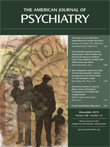I was attracted to this book by its title and the illustration of the neuron on the cover. It reminded me of psychotherapy. Like many of you, I spend a lot of time thinking about what is helpful for patients, how to attempt to be wise, and how to impart wisdom to patients and trainees. And as an avid consumer of neuroscience literature, I looked forward to reading about brain studies on wisdom.
Written by science journalist Stephen S. Hall, Wisdom was sparked by an article he was asked to write for The New York Times Magazine. Later, he expanded the article into this book, and I have to admire him for taking on this important and difficult topic.
The first section of the book, “Wisdom Defined (Sort Of),” begins with an attempt at a definition of wisdom. However, it really only comes up with descriptions of characteristics of supposedly wise people. For instance, “[w]isdom requires an experience-based knowledge of the world…[i]t requires mental focus, reflecting the ability to analyze and discern the most important aspects of the acquired knowledge….It requires mediating, refereeing, between the frequently conflicting inputs of emotion and reason, of narrow self-interest and broader social interest, of instant rewards of future gains” (pp. 17, 18).
Following this first chapter, the author embarks on an impressive review of the history of the discourses and studies about wisdom by philosophers and psychologists. He combines descriptions of experiments, anecdotes, and interviews with experts. Engaging at first, it becomes rambling, and I grew tired of story after story of people's thoughts on wisdom and how difficult it is to define and measure. The lightness of the anecdotes only temporarily distracted me from the lack of substantial conclusions. I concluded that philosophers may be wise, but they were not helping me find wisdom. I looked forward to moving on to Part 2, titled the “Eight Neural Pillars of Wisdom,” hoping for some neuroscientific enlightenment.
The chapter topics are provocative for this second section: emotional regulation; the art of coping; knowing what's important; the neural mechanisms of establishing value and making a judgment; moral reasoning; the biology of judging right from wrong; compassion; the biology of loving-kindness and empathy; humility; the gift of perspective; altruism; social justice, fairness, and the wisdom of punishment; patience; temptation, delayed gratification, and the biology of learning to wait for larger rewards; dealing with uncertainty; and change, “meta-wisdom,” and the vulcanization of the human brain.
It is not clear how the author chose these as the “Eight Neural Pillars of Wisdom,” but they certainly seem like a worthwhile set of attributes to aspire to. Each chapter gives a nice overview of studies on the topic, weaving in expert opinions and anecdotes. The neuroscience was much more readable than the philosophical part of the book.
I would have added another pillar: “theory of mind,” the ability to understand another's state of mind to explain or predict the other's behavior. This was touched upon briefly in the chapter on compassion but could have been greatly expanded. There is a great deal of interesting neuroscience on this topic, and to me, it seems like an essential component of wisdom.
The third and final section is titled “Becoming Wise.” It covers the topics of wisdom in youth and old age, wisdom in everyday life, and the possibility of teaching wisdom. Again, I found the discourse to be far-ranging but mostly unsatisfying. The book wrapped up with a discussion on the wisdom of bees. The bee keeper/wisdom researcher stated that “this type of knowledge is always going to be a little elusive and evasive, but it's always there” (p. 272). To me this felt like throwing up one's hands and saying, “Who knows? It's a mystery.”
Overall, despite the frustration that neither the author nor wise philosophers nor brilliant neuroscientists pinpointed the definition of wisdom, I am happy to have read this book because it provoked me to ponder what wisdom means to me, a self-reflection that seems appropriate for this holiday season. Here is my definition: Wisdom is the ability to weigh many aspects of a situation, including both emotional and rational responses and others' points of view, and then, with an understanding of human nature and tendencies, to accurately value these aspects and be able to act or advise optimally. I think many readers will also appreciate this book's paradoxical ability get them thinking about what wisdom means to each of them.

